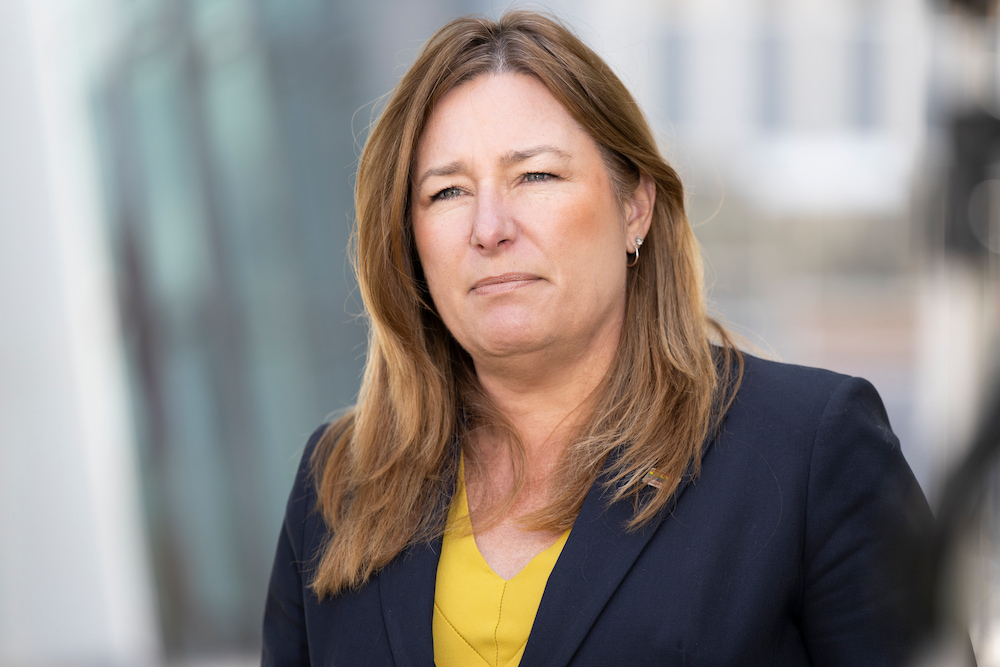The ACT Government has paused mandatory relocations of tenants under the Growing and Renewing Public Housing program until the end of August while Housing ACT redesigns its decision-making processes, as the ACT Ombudsman recommended in a report published earlier this week.
Housing minister Yvette Berry said she had been advised that Housing ACT’s decision-making process was flawed.
“I’m sorry to all of the tenants who this has impacted, and the uncertainty this causes,” Ms Berry said.
“The government’s goal is to make sure we have public housing homes that are modern, sustainable and meet the needs of our current tenants, and those on the wait list.
“We always plan to support tenants and put them first, and I’m disappointed that the policies and processes in place didn’t allow that to happen.”
The Growing and Renewing Public Housing program, which began in 2019, aims to deliver 1,400 public housing homes across six years (renewing 1,000 homes and adding 400 new ones) from 2019-20 to 2026-27 – the largest per capita investment in public housing in Australia, the government states.
To fund the program, it relocated tenants from properties that could be redeveloped or sold to generate revenue. But not all of those tenants wanted to move.
At first, all relocations were voluntary, but in February 2022, the government informed 337 tenants that they would need to move from their properties, which had been identified for sale or redevelopment.
These mandatory relocations were condemned both by the Canberra Liberals and by the community sector.
Opposition leader Elizabeth Lee spoke of “the debacle that is the heartless relocation of tenants”, while shadow housing minister Mark Parton said the government had “no regard for its most vulnerable citizens, and has tried to forcibly remove long-term tenants from homes that are in perfectly good condition”.
The ACT Council of Social Service (ACTCOSS) described the policy as “heartless and cruel” (a charge the government denied), and questioned why tenants were only given two days to prepare for hearings to explain why they should not be forcibly relocated.
In May 2022, ACTCOSS, other organisations, and former Chief Minister Jon Stanhope urged the government to “end all forced relocations under the scheme and instead revert to a voluntary, opt-in program of relocation”.
They noted that most of the tenants were elderly, women, people with disabilities, or people with lived experience of mental illness. “We are of the strong view that forcibly relocating vulnerable tenants threatens to cause significant harm to these individuals and is not an acceptable way to raise revenue.”
The ACT Ombudsman’s office received nine complaints from tenants who had been told they must move from their properties. It raised concerns with Housing ACT, which then made some improvements.
The Ombudsman began an investigation in December 2022. The investigation found that while Housing ACT had improved delivery of the program, further changes should be made to policies and procedures, communication with tenants, and planning and evaluation.
Agencies should adopt a people-centred communication approach, considering vulnerabilities from the start, the Ombudsman recommended. They must publish clear and up-to-date information that is easily accessible. They should conduct proper program and risk planning, incorporating review and evaluation into program delivery.
“It is essential that Housing ACT balance the legitimate public policy goals of the Program with the needs of public housing tenants, especially the most vulnerable; it is one thing to speak of a people-centred approach and another thing to deliver it,” the report states.
Housing ACT has accepted eight recommendations and accepted-in-principle one recommendation from the ACT Ombudsman, and begun implementing them.
Housing ACT will tell 154 tenants that the decision to relocate will not apply, and that their case will be reconsidered. If tenants still want to voluntarily move, they can.
ACTCOSS welcomes government decision
ACTCOSS CEO Dr Devin Bowles said that the organisation “welcomed the Minister’s robust response to the ACT Ombudsman’s report and the Government’s commitment to acting on the majority of recommendations to improve the implementation of the Growing and Renewing Public Housing Program”.
“It is vital Housing ACT balances the legitimate goals of renewing and growing the ACT’s public housing stock with the needs of existing public housing tenants, especially those experiencing vulnerabilities,” Dr Bowles said. “As ACTCOSS and other community organisations have previously indicated, this balance has not always been achieved, resulting in distress and disruption to some of the most vulnerable Canberrans.
“We urge the ACT Government to act on the Ombudsman’s recommendations and strengthen Housing ACT’s policies and procedures, including better planning and evaluation, and improving consultation and communication with ACT Housing tenants and the organisations that support them…
“ACTCOSS looks forward to working with the government to support the implementation of the Ombudsman’s recommendations and ensure the ACT’s public housing program achieves the best outcomes for tenants and the wider ACT community.”



